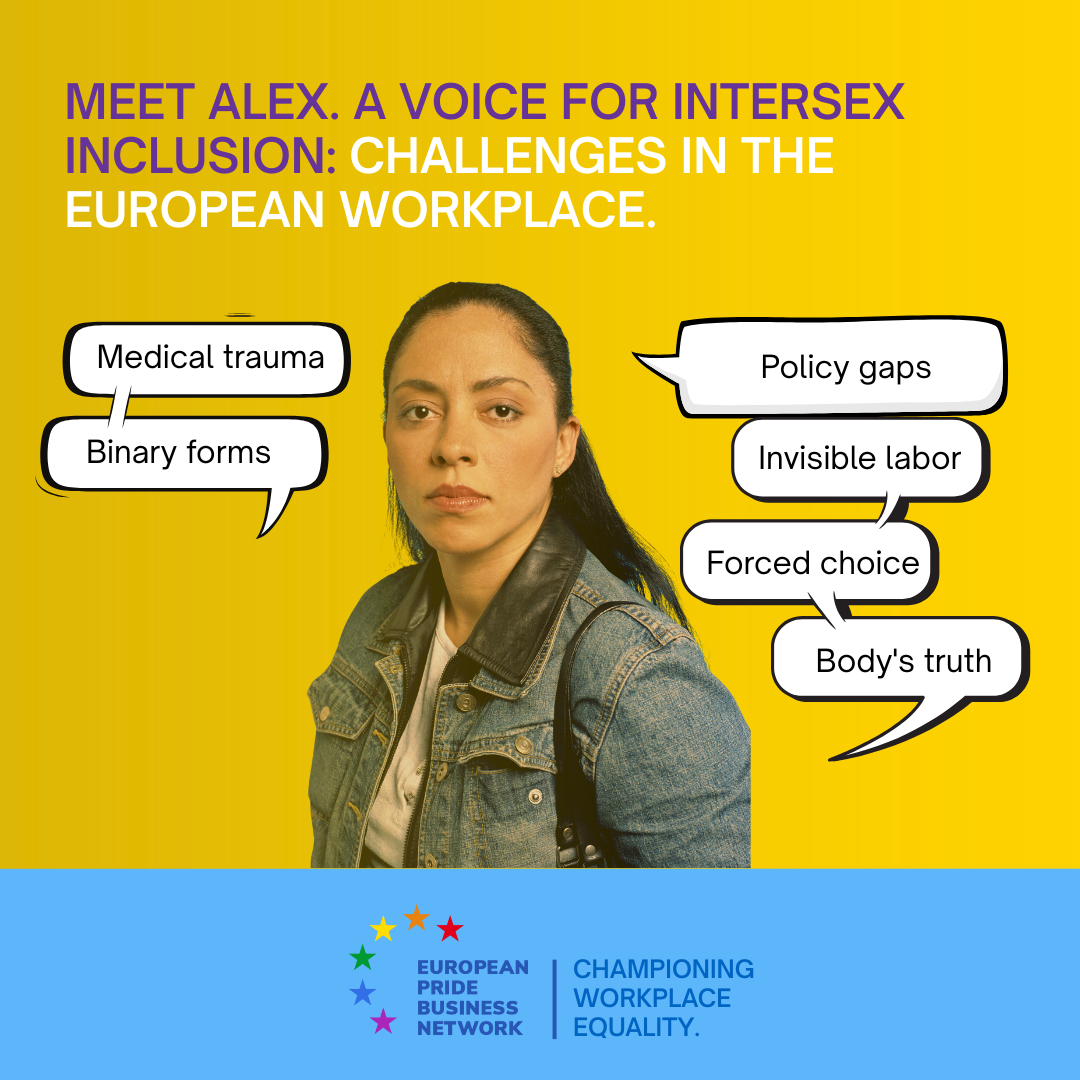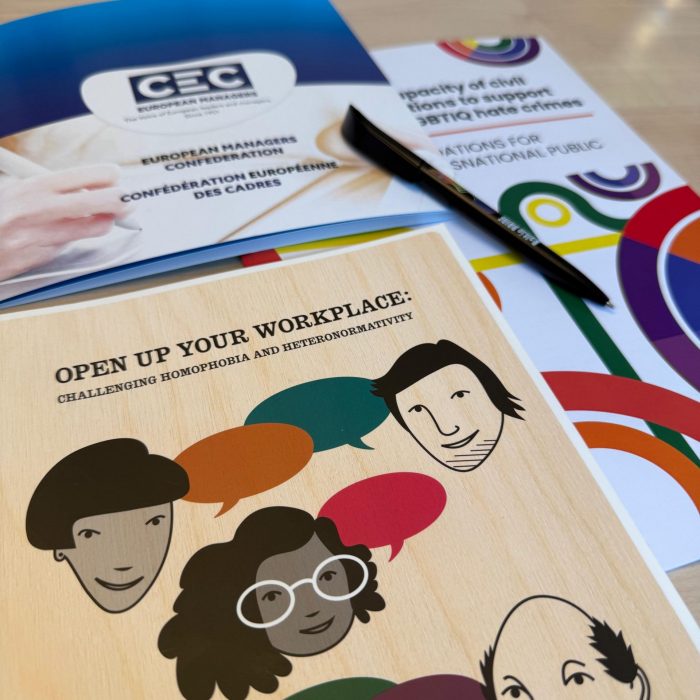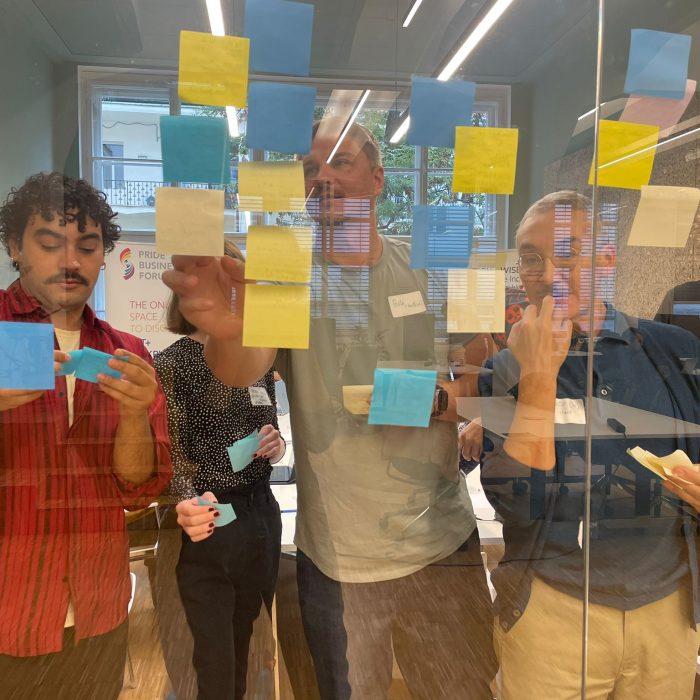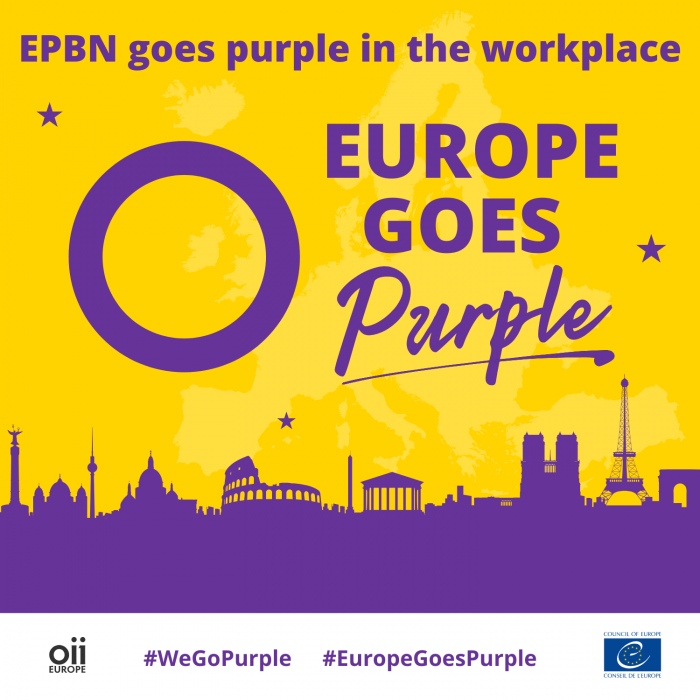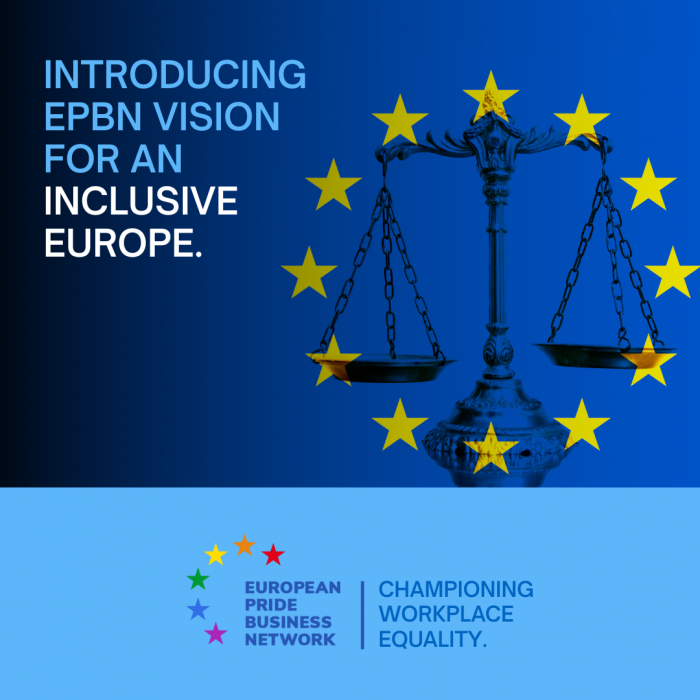The decision to be openly intersex in the European workplace is a deeply personal and often extremely difficult one, frequently involving profound concerns about privacy, disclosure, and potential discrimination. To protect the anonymity and safety of intersex professionals advocating for change, we introduce you to Alex (They/Them). Alex is a composite profile, a fictional story built from the shared experiences and testimonies of numerous intersex colleagues. Their story of navigating both the anxiety of medical trauma and the challenge of binary administrative systems in the workplace provides a human face to the urgent policy changes the European Pride Business Network (EPBN) is fighting for.
The Voice of Experience: Introducing Alex (They/Them), 32, Data Analyst, Germany
Alex was assigned female at birth following an initial medical assessment, but their intersex variation was managed with medical procedures throughout childhood and adolescence. While their parents believed they were doing the right thing, Alex grew up feeling that a fundamental part of their physical reality, their body’s truth, was a secret and a problem to be corrected, not merely a natural variation.
Challenge 1: Medical mistrust and Trauma
The core of Alex’s early experience aligns directly with a key area of policy concern: the lack of free, prior, and fully informed consent for non-consensual interventions to modify sex characteristics, as highlighted in the FRA’s Being Intersex in the EU report.
Even today, Alex finds routine medical visits fraught with anxiety. They constantly worry about disclosing their history, fearing they will either receive inadequate, uninformed care or be subjected to unnecessary scrutiny. The experience left a deep psychological scar, leading to a long-term pattern of avoiding essential healthcare services, a widespread problem among intersex individuals.
Challenge 2: The Ambiguous Workplace
Alex is a highly skilled data analyst, but the professional world has its own hurdles. They live authentically as themselves, presenting in a way that is true to their non-binary identity. However, when navigating Human Resources, legal paperwork, and international company policies, they often hit roadblocks.
The primary issue is the binary nature of official documentation. When they fill out forms that require “Male” or “Female” sex markers, they are forced to choose, invalidating their identity and medical history. This administrative dilemma, compounded by the current legislative gaps the European Pride Business Network (EPBN) seeks to address, creates a constant sense of being “othered” and excluded, even in companies that pride themselves on diversity.
While their current team is supportive, Alex has to choose daily: correct someone who misgenders them and spend emotional energy, or stay quiet for the sake of an easier meeting. This is the invisible labor of inclusion, the constant emotional effort required simply to exist authentically in a binary-centric workplace. Alex’s desire isn’t for special treatment, but for the simple dignity of having policies and systems that acknowledge and respect the full spectrum of human variation.
How the Council of Europe’s New Standard Transforms Intersex Workplace Rights? Read more.
